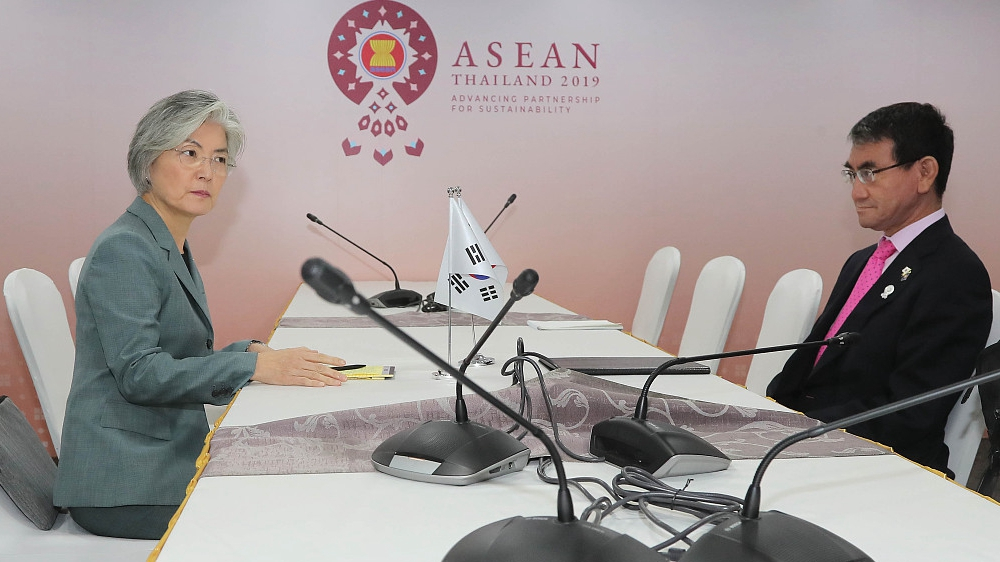

South Korea warned that security cooperation might be hurt if it was removed from Japan's favored-trade list. This comes after a round of high-level talks between the two sides at the ASEAN Foreign Ministers' Meeting in Bangkok.
The decision by Japan on whether to remove the neighbor from its preferential "white list" will be made on Friday and will likely take effect later in August.
Relations between Japan and South Korea, plagued by bitterness over Japan's 1910-1945 occupation of the Korean Peninsula, are arguably at their lowest since they normalized ties in 1965.
A spiraling row over the past month is threatening to disrupt the global supply of semiconductors and undercut security cooperation on the Democratic People's Republic of Korea.
South Korea's foreign minister, Kang Kyung-wha, held talks with her Japanese counterpart, Taro Kono, on the sidelines of a Southeast Asian conference in Bangkok on Thursday.
The meeting was the highest-level talks since Japan tightened curbs last month on exports to South Korea of high-tech materials, accusing its neighbor of inadequate management of sensitive items.
But the talks yielded little progress, with a South Korean foreign ministry official saying there was "virtually no change" in Japan's stance.
Japan is expected to drop South Korea from its "white list" of countries that enjoy smooth trade. A South Korean ministry official said it was "highly likely" to happen on Friday.
Kang said she urged Kono to stop that process or it would force South Korea to craft countermeasures.
South Korean officials have warned they may reconsider an intelligence sharing accord with Japan if the feud worsens.
The bilateral accord, known as the General Security of Military Information Agreement (GSOMIA), is automatically renewed every August. It is chiefly aimed at countering DPRK's nuclear and missile threats.
"As Japan cited security reasons for its trade restrictions, I said we will have no option but to review the various elements that form the framework of security cooperation with Japan," Kang told reporters, when asked whether South Korea would keep the GSOMIA if it was dropped from the Japanese list.

Copyright © 2018 CGTN. Beijing ICP prepared NO.16065310-3
Copyright © 2018 CGTN. Beijing ICP prepared NO.16065310-3